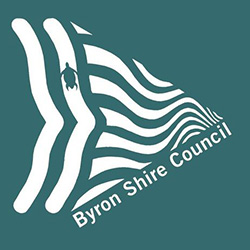Dealing with disqualifications will require constitutional amendment, says head of panel on electoral matters. The inquiry examining the citizenship crisis in Australia’s parliament is considering the use of a random assembly to decide how best to repeal or replace the constitution’s disqualification of dual citizens. Linda Reynolds, chair of the joint standing committee on electoral...Continue reading
Library
Why democracy doesn’t deliver. AFR
Many of us believe that democracy delivers our collective wisdom. The ascendancy of Donald Trump to the Presidency of the United States has jolted that faith. Trump’s victory epitomises the challenge of the popular vote.
Why democracy doesn’t deliver
Many of us believe that democracy delivers our collective wisdom. The ascendancy of Donald Trump to the Presidency of the United States has jolted that faith. Trump’s victory epitomises the challenge of the popular vote. Elections are synonymous with democracy, but it is disconcerting to see how poorly that tool is serving us now. The...Continue reading
Byron Shire Council – Trialling a community solutions panel (2018)
The Byron Shire is well known as a domestic and international tourist destination, with over two million annual visitors. Local residents and tourists alike place significant value on the unique character of the area and its lifestyle. The conundrum before Council is how to balance protection of that character with demands for more, and higher...Continue reading
Newman and Hinchliffe: Productive politics requires reform to end divisiveness
We come from different political backgrounds and views but we share one strong central belief — our political system appears to be broken. It’s time to fix it and we hope this is the year that the fix starts. We need to try some bold ideas. Tinkering with the edges won’t repair a toxic system...Continue reading
Our Final 2017 Newsletter
Welcome to our final update for the year on all things newDemocracy. It has been a busy close to the year for newDemocracy. Projects have concluded and foundations are being laid for next year’s large projects. We’ve seen a flurry of events from Athens to Melbourne, all focused on doing democracy better. Athens Democracy Forum: Kofi Annan’s Push for One Major...Continue reading
SMH: How can we do democracy better?
Australia has just conducted “probably our boldest electoral experiment since the military conscription plebiscites of 1916 and 1917”, in the words of Liberal Senator Dean Smith, the author of the private member’s bill that will now carry the result of the marriage plebiscite into law. “At a time when public faith in political institutions is...Continue reading
newDemocracy Foundation R&D: September 2017 Research Newsletter
Welcome to the September issue of our research newsletter. In this issue, we revisit our largest ever project in the South Australia Nuclear Fuel Cycle Engagement Jury. We look at what worked well, what didn’t work, and look to areas of improvement for taking citizens’ juries into the future. This is a must read for those interested in any...Continue reading
Iain Walker: We can do democracy better
This piece is a reflection by Iain Walker, Executive Director of Australia’s newDemocracy Foundation and a guest at a recent PACE member gathering. The message I share is well-worn and I can roll into reformist evangelism when first woken if need be. I’ve delivered it to senators and skeptical TV audiences with a smile. Yet...Continue reading
Views from a former Deputy-Chief of Staff: Innovation in Democracy
Recently, Matt Ryan, former Deputy-Chief of Staff to South Australian Premier Jay Weatherill, spoke at an event in Spain organised by the Regional Government of Gipuzkoa, a region in the Basque Country in northern Spain. The government has established an agenda entitled “Etorkizuna Eraikiz” or “Building the Future” which explicitly links the future prosperity of...Continue reading







